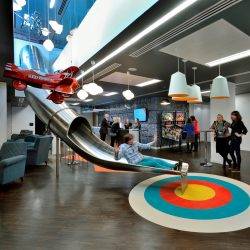December 17, 2018
More than half of employees have experienced some form of workplace bullying
 More than half (52 percent) of employees in global organisations have encountered workplace bullying and felt psychologically unsafe at work, according to a new study conducted by City & Guilds Group. The report also claims that only one in ten firms proactively take steps to support staff mental health, and found a major discrepancy in how senior management and employees view psychological safety in the workplace. Almost all of respondents surveyed (94 percent) said that they consider psychological safety to be “important”, but just 10 percent of businesses are seen to treat it as a priority. In part this seems down to confusion over accountability; almost half (43 percent) of senior management expect HR to deal with the psychological safety of employees at work, while the majority of employees (56 percent), believe line managers and senior management should take the lead.
More than half (52 percent) of employees in global organisations have encountered workplace bullying and felt psychologically unsafe at work, according to a new study conducted by City & Guilds Group. The report also claims that only one in ten firms proactively take steps to support staff mental health, and found a major discrepancy in how senior management and employees view psychological safety in the workplace. Almost all of respondents surveyed (94 percent) said that they consider psychological safety to be “important”, but just 10 percent of businesses are seen to treat it as a priority. In part this seems down to confusion over accountability; almost half (43 percent) of senior management expect HR to deal with the psychological safety of employees at work, while the majority of employees (56 percent), believe line managers and senior management should take the lead.












 Technology is in the process of transforming almost every aspect of society, with change happening at an “accelerating rate,” and this is being made possible due of simultaneous rapid advances in several key areas of technology. This is according to a new White Paper on
Technology is in the process of transforming almost every aspect of society, with change happening at an “accelerating rate,” and this is being made possible due of simultaneous rapid advances in several key areas of technology. This is according to a new White Paper on 





















December 13, 2018
Flexible working should not mean employers ask people to work all the time
by Oliver Shaw • Comment, Flexible working, Wellbeing
Talking about the role of technology within the flexible working arena is hardly ground-breaking. For decades, technological advancements have been hailed as pivotal to developments within the employment landscape. But this year, conversation appears to have reached another level. In an article for Open Access Government in June 2018, for instance, Richard Morris, UK CEO of International Workplace Group (IWG), explained the extent to which technology-driven shifts have caused significant social change. And in September, HR headlines homed in on a study by Capita and Citrix, which stressed that an inability to quickly introduce new IT services is restricting organisations’ flexibility proposition, and consequently their competitiveness.
More →